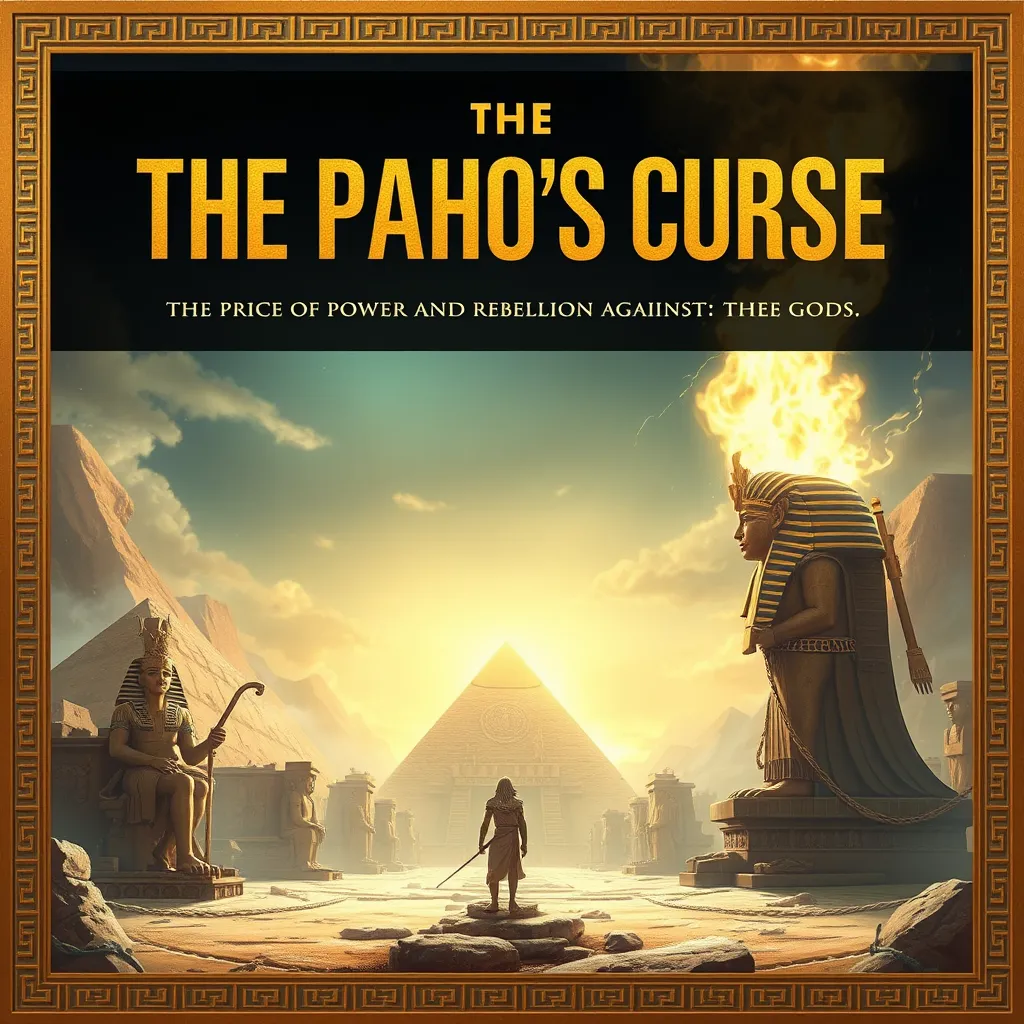The Pharaoh’s Curse: The Price of Power and Rebellion Against the Gods
I. Introduction
The concept of the Pharaoh’s curse has captivated imaginations for centuries, intertwining the themes of power, divine retribution, and the supernatural. Ancient Egypt, with its rich tapestry of mythology and religious beliefs, serves as the backdrop for this enduring narrative. The Pharaohs, considered both earthly rulers and divine intermediaries, navigated a complex landscape where the desire for power often clashed with the unwavering expectations of the gods.
Understanding the Pharaoh’s curse requires delving into the historical context of ancient Egyptian beliefs, where the balance between earthly authority and divine favor was a matter of life and death. The significance of power and rebellion in this kingdom not only shaped its rulers but also influenced the very fabric of Egyptian society.
II. The Divine Right of Pharaohs
The Pharaohs of ancient Egypt were viewed as divine rulers, holding a unique position that merged the sacred and the sovereign. This section explores the intricacies of their role:
- Divine Rulership: Pharaohs were seen as the earthly embodiment of the gods, specifically Horus, the god of the sky, and Osiris, the god of the afterlife.
- Relationship with the Gods: The Pharaoh maintained a close relationship with the deities, often performing rituals and making offerings to ensure their favor.
- Legitimization of Power: The authority of the Pharaoh was legitimized through divine endorsement, with the belief that their right to rule was granted by the gods themselves.
III. The Origins of the Pharaoh’s Curse
The origins of the Pharaoh’s curse are steeped in history and mythology, with numerous accounts of curses linked to tombs and treasures. This section examines:
- Historical Accounts: Many tombs were said to be protected by curses to deter grave robbers, claiming that those who disturbed the dead would face dire consequences.
- Mythology of the Afterlife: The ancient Egyptians believed in a complex afterlife where divine retribution awaited those who disrespected sacred sites.
- Notable Examples: The tomb of Tutankhamun, discovered in 1922, is famously associated with a curse, as several individuals involved in the discovery met untimely ends.
IV. Case Studies: Pharaohs Who Defied the Gods
Throughout history, certain Pharaohs dared to defy traditional beliefs and practices, challenging the divine order.
A. The Reign of Akhenaten
Akhenaten is known for his radical shift towards monotheism, promoting the worship of Aten, the sun disk. This defiance towards the established pantheon of gods led to significant upheaval in Egyptian society.
B. Hatshepsut’s Unconventional Rise to Power
Hatshepsut, one of the few female Pharaohs, took unprecedented steps to solidify her rule, donning male attire and adopting a male persona, which challenged gender norms and divine expectations.
C. The Downfall of Rebellious Pharaohs
Pharaohs like Akhenaten and others faced dire repercussions for their defiance, often leading to their erasure from history, which served as a warning against rebellion.
V. The Consequences of Rebellion
Defying the divine order came with significant consequences. The repercussions of rebellion against the gods manifested in various ways:
- Social and Political Repercussions: Those who challenged the established order often faced resistance from the priesthood and the populace, leading to civil strife.
- Impact on Legacy: Pharaohs who rebelled were frequently vilified in historical records, their accomplishments overshadowed by their perceived hubris.
- Stories of Misfortune: Many tales of misfortune and demise were attributed to the Pharaoh’s curse, reinforcing the belief in divine retribution.
VI. The Curse in Modern Culture
The Pharaoh’s curse has transcended the annals of history, finding its way into modern culture:
- Influence on Literature and Film: The curse has been a popular theme in novels and movies, often depicted as a mysterious and deadly force.
- Fascination with Ancient Egypt: The allure of ancient Egypt continues to captivate contemporary society, prompting interest in its mythology and history.
- Misconceptions and Myths: Many misconceptions surround the curse, often exaggerated for dramatic effect in popular media.
VII. Archaeological Discoveries and Their Implications
Archaeological discoveries have revealed much about the beliefs and practices of ancient Egyptians, particularly concerning curses:
- Significant Findings: Excavations have uncovered inscriptions and artifacts that speak of curses intended to protect tombs from intruders.
- Modern Science: Advances in science have helped debunk some narratives surrounding curses, revealing natural explanations for the misfortunes attributed to them.
- Ethical Considerations: The exploration of ancient tombs raises ethical questions regarding respect for the dead and the preservation of cultural heritage.
VIII. Conclusion
The enduring legacy of the Pharaoh’s curse serves as a poignant reminder of the interplay between power, rebellion, and the divine. In today’s context, the dynamics of authority and the consequences of defiance remain relevant, echoing the lessons learned from ancient Egypt. The intersection of mythology, history, and human ambition continues to inspire and caution those who seek power, reminding us that with great power often comes great responsibility.




